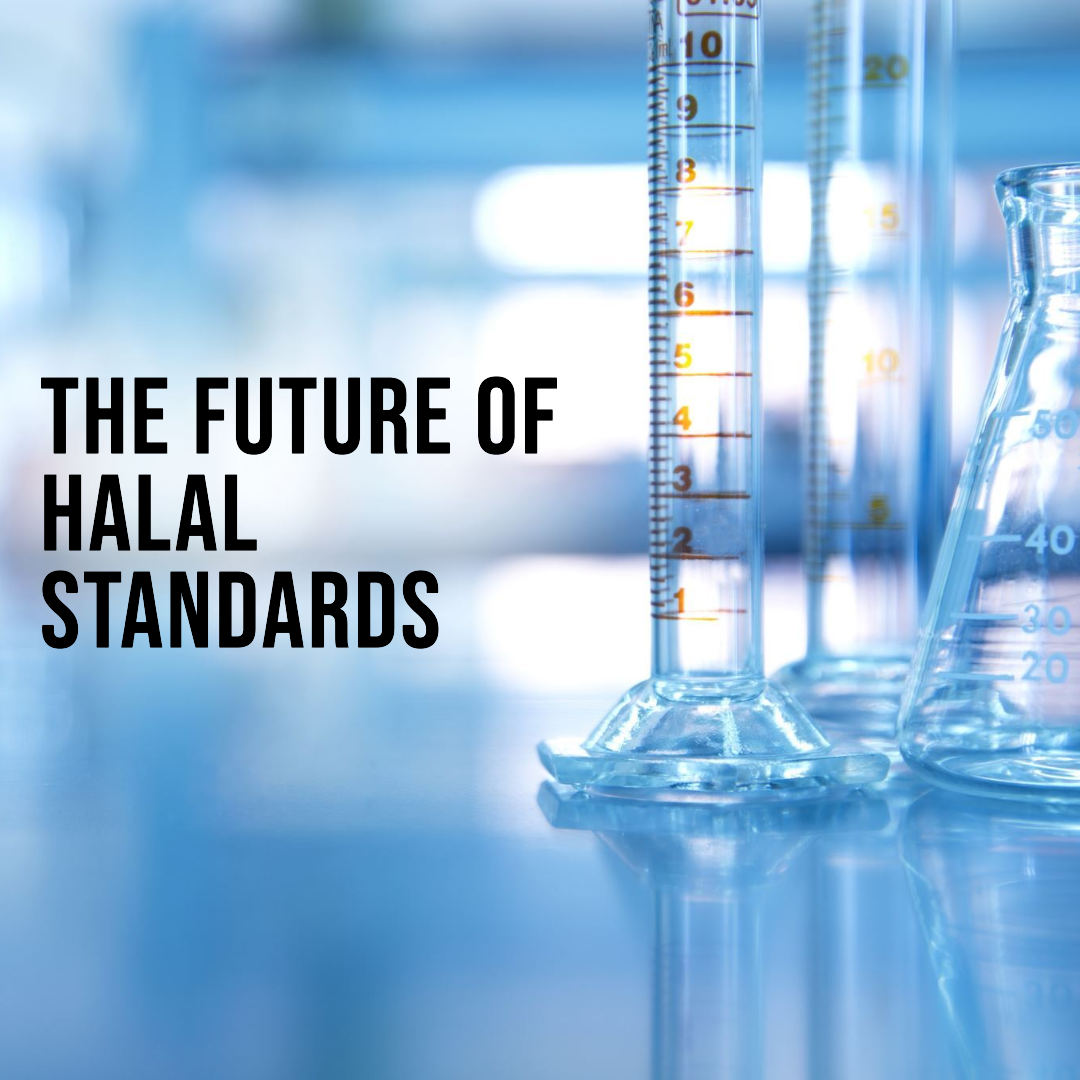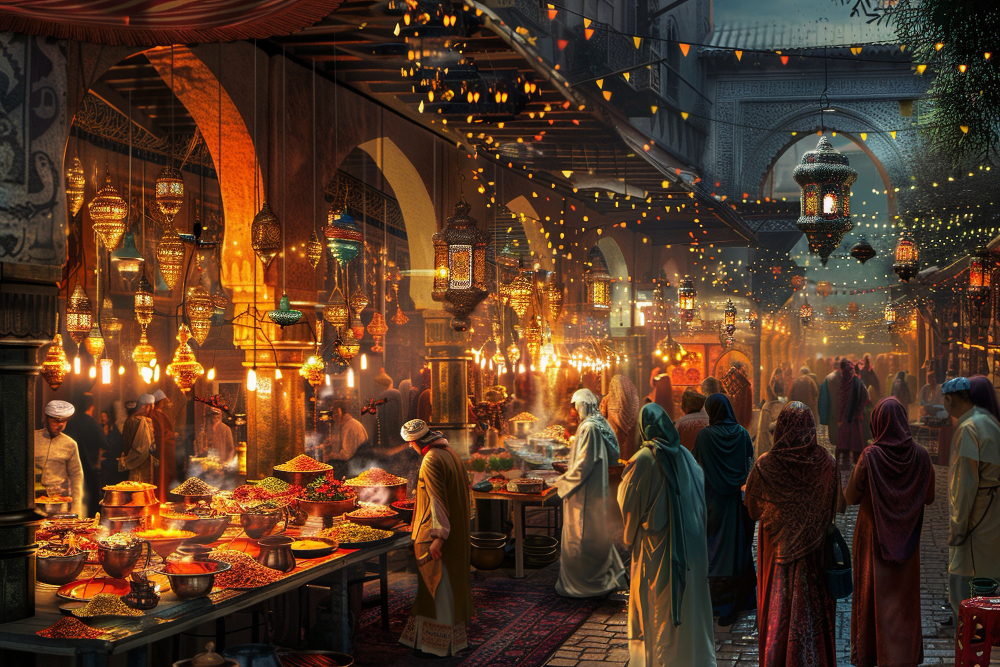Let’s understand halal standards by imagining walking through the bustling markets of ancient cities like Cairo, Damascus, or Istanbul. The air is filled with the scent of spices, the chatter of traders, and the calls to prayer echoing from nearby mosques. In these markets, the concept of Halal – meaning “permissible” in Arabic – was a cornerstone of daily life, guiding not just what people ate, but how they lived, traded, and interacted.
Fast forward to today, and Halal standards have evolved into a complex, globally recognized system that extends far beyond food. This journey from ancient practices to modern certification is a fascinating tale of tradition, innovation, and global collaboration.
Historical Development of Halal Standards
Early Beginnings: Tradition and Trust
In the early days of Islam, Halal practices were inherently understood within the community. People relied on local religious leaders, or Imams, to interpret Islamic dietary laws based on the Quran and Hadith. This informal system worked well in small, close-knit communities where personal trust and religious observance were paramount.
Example: In a small village, a butcher might be well-known for his piety and adherence to Islamic laws, ensuring that his meat was Halal. His reputation within the community served as his certification.
Formalization: A Response to Growth and Migration
As Muslim populations grew and spread across the globe, the need for a more structured approach to Halal certification became apparent. The 20th century, in particular, marked significant changes. Countries with substantial Muslim populations, like Malaysia and Indonesia, began to establish formal Halal certification bodies to regulate and certify products systematically.
Example: Malaysia’s Department of Islamic Development (JAKIM) was established in 1997. JAKIM’s rigorous standards and certification processes set a benchmark, making Malaysian Halal certification highly respected worldwide.
Globalization: Harmonizing Standards
The advent of globalization brought new challenges and opportunities. With products and food items crossing borders daily, consistent and internationally recognized Halal standards became crucial. Organizations like the Standards and Metrology Institute for Islamic Countries (SMIIC) and the World Halal Council (WHC) have been pivotal in creating unified standards.
Example: The SMIIC, under the Organization of Islamic Cooperation (OIC), works to standardize Halal certification among member countries, ensuring that a product certified in one country is recognized as Halal in another.
Future Trends in Halal Standards
Technological Integration: Enhancing Transparency
Technology is set to revolutionize Halal certification. Blockchain and the Internet of Things (IoT) offer new ways to enhance transparency and traceability in the supply chain.
Example: Blockchain can create an immutable record of a product’s journey from farm to table, ensuring that every step adheres to Halal standards. This technology can prevent fraud and reassure consumers of a product’s authenticity.
Sustainability and Ethical Standards: A New Horizon
Today’s consumers are increasingly concerned about sustainability and ethics. The future of Halal standards will likely include criteria for environmental impact, animal welfare, and fair trade practices.
Example: Halal certification bodies are beginning to incorporate guidelines that ensure animals are raised humanely, and products are sourced sustainably. This approach not only aligns with Islamic principles but also appeals to the broader market of conscious consumers.
Expansion Beyond Food: A Comprehensive Approach
The concept of Halal is expanding beyond food to encompass pharmaceuticals, cosmetics, fashion, and even tourism. This expansion responds to the diverse needs of Muslim consumers and the economic potential of the Halal market.
Example: Halal-certified cosmetics are gaining popularity, with brands like Amara Halal Cosmetics ensuring that their products are free from alcohol and animal-derived ingredients, meeting the spiritual and ethical needs of their customers.
Global Collaboration: Building Trust Across Borders
As the Halal market grows, so does the need for international cooperation. Organizations are working together to harmonize standards and certification processes, making it easier for products to be recognized as Halal across different countries.
Example: Initiatives by the International Halal Accreditation Forum (IHAF) aim to reduce discrepancies and build a unified global Halal certification framework, facilitating smoother international trade.
As Halal standards continue to evolve, they reflect a dynamic interplay between tradition and innovation. By embracing technological advancements and expanding their scope, these standards ensure that Halal products meet the spiritual, ethical, and practical needs of Muslim consumers worldwide. This journey from ancient markets to modern certification bodies highlights the resilience and adaptability of Halal principles, promising a future where Halal standards continue to uphold the values of trust, integrity, and sustainability.
Halal standards FAQs
1. What does Halal mean? Halal is an Arabic term that means "permissible" and refers to what is allowed under Islamic law. It encompasses food, drinks, cosmetics, pharmaceuticals, and other products and practices.
2. Why are Halal standards important? Halal standards ensure that products meet Islamic dietary laws and ethical principles, providing assurance to Muslim consumers. They also help maintain consistency and trust in the global Halal market.
3. How do Halal standards incorporate sustainability? Modern Halal standards are beginning to include criteria for sustainability, such as humane animal treatment, environmental impact, and fair trade practices, reflecting a holistic approach to ethical consumption.
4. What role does technology play in Halal certification? Technologies like blockchain and IoT enhance the transparency and traceability of Halal products, ensuring that every step of the supply chain adheres to Halal standards and preventing fraud.
5. How are Halal standards harmonized globally? Organizations like the Standards and Metrology Institute for Islamic Countries (SMIIC) and the International Halal Accreditation Forum (IHAF) work to standardize Halal certification processes, making it easier for products to be recognized as Halal across different countries.
Further reading…
- iHalalCoin.org: Leading The Way Of Halal Financial
- Ethical Consumption: The Halal Perspective
- The Future of Technology and Halal Intersection
- The Science Behind Halal: Health Benefits and Guidelines
- The Halal Lifestyle: A Path to Wellness



